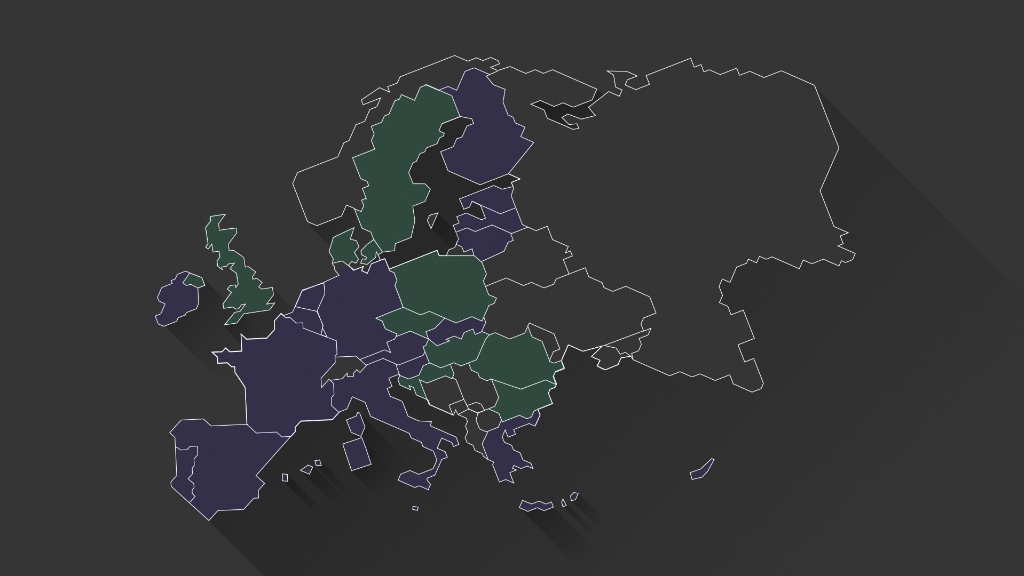
After months of negotiations, European Union officials have proposed a series of reforms aimed at persuading Britain to remain a member of the bloc.
European Council President Donald Tusk has been at the center of the talks. The proposals need the support of all 28 EU leaders, who will discuss them later this month at a summit in Brussels.
Here's the edited text of Tusk's letter to the EU leaders:
"Keeping the unity of the European Union is the biggest challenge for all of us and so it is the key objective of my mandate. It is in this spirit that I put forward a proposal for a new settlement of the United Kingdom within the EU. To my mind it goes really far in addressing all the concerns raised by Prime Minister [David] Cameron. The line I did not cross, however, were the principles on which the European project is founded.
'To be, or not to be together'
I deeply believe that our community of interests is much stronger than what divides us. To be, or not to be together, that is the question which must be answered not only by the British people in a referendum, but also by the other 27 members of the EU in the next two weeks.
This has been a difficult process and there are still challenging negotiations ahead. Nothing is agreed until everything is agreed. I am convinced that the proposal is a good basis for a compromise. It could not have been drafted without the close and good cooperation of the European Commission. In order to facilitate this process the Commission also made political declarations that are included in this package.
Let me briefly refer to all the four baskets of the proposal.
No discrimination against non-euro states
On economic governance, the draft Decision of the Heads sets out principles to ensure mutual respect between the Member States taking part in further deepening of the Economic and Monetary Union and those which do not. By doing that we can pave the way for the further integration within the euro area while safeguarding the rights and competences of non-participating Member States.
The respect for these principles is backed up by a draft Decision establishing a mechanism that while giving necessary reassurances on the concerns of non-euro area Member States, cannot constitute a veto nor delay urgent decisions. The exact conditions for triggering this mechanism remain to be further discussed.
We'll reduce red tape
On competitiveness, the draft Decision of the Heads, together with a more detailed European Council Declaration and a draft Commission Declaration, will set out our commitment to increase efforts to enhance competitiveness. We will regularly assess progress in simplifying legislation and reducing burden on business so that red tape is cut.
More power for national parliaments
On sovereignty, the proposed Decision of the Heads recognizes that in light of the United Kingdom's special situation under the Treaties, it is not committed to further political integration. It also reinforces respect for subsidiarity, and I propose that the Member States discontinue the consideration of a draft legislative act where a number of national parliaments object to it on the grounds of subsidiarity, unless the concerns raised can be accommodated. The importance of respecting the opt-out regime of Protocols 21 and 22, as well as national security responsibilities is also underlined.
Limiting benefits for migrants
On social benefits and free movement, we need to fully respect the current treaties, in particular the principles of freedom of movement and non-discrimination. Therefore the proposed solution to address the UK concerns builds on the clarification of the interpretation of current rules, including a draft Commission Declaration on a number of issues relating to better fighting abuse of free movement.
The draft Decision of the Heads notes, in particular, the Commission's intention to propose changes to EU legislation as regards the export of child benefits and the creation of a safeguard mechanism to respond to exceptional situations of inflow of workers from other Member States. A draft Commission Declaration also relates to this mechanism. This approach, as well as the exact duration of the application of such a mechanism need to be further discussed at our level.
Most of the substance of this proposal takes the form of a legally binding Decision of the Heads of State or Governments. We should also be prepared to discuss the possible incorporation of the substance of a few elements covered by the Decision into the Treaties at the time of their next revision.
Our [diplomats] and Permanent Representatives will meet on Friday this week to have the first discussion of the proposal. The clear objective is to have an agreement of all 28 at the February European Council. To succeed we will all need to compromise. To fail would be compromising our common future.
Donald Tusk, President of the European Council"



